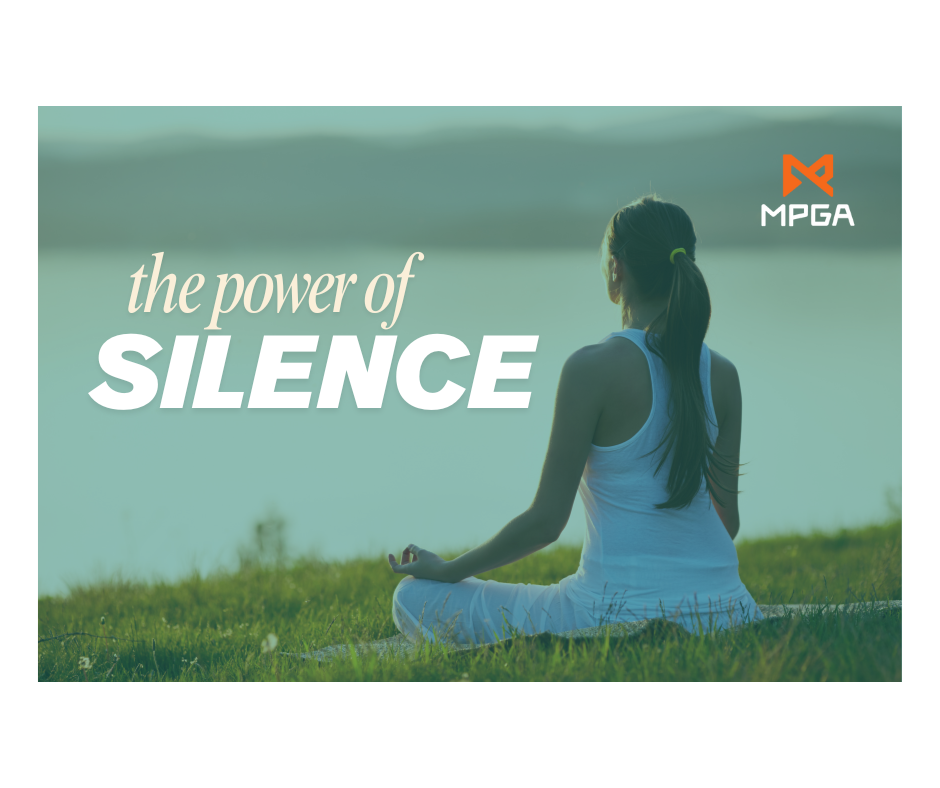The Power of Silence: Unlocking Peak Performance
Why Doing Nothing Was the Breakthrough Mona Needed
When I first started working with Mona, a professional golfer—she came to me in a state of frustration.
She loved golf, yet she couldn’t understand why she was losing motivation to practice and compete. She told me she felt like she was giving up too easily, even though she cared deeply about her career. Out of desperation, she kept asking me:
“What do I need to do? What more can I do to change this? How do I get better?”
She expected me to tell her to train harder, practice longer, or add more structure. Instead, I gave her an answer that stopped her in her tracks.
I told her: “Do nothing. Listen.”
Mona had been stuck in the mindset that growth comes only from doing more—more practice, more drills, more effort. But what she needed wasn’t more activity. She needed silence. She needed to listen to her body, her emotions, and her inner voice.
What Mona was experiencing wasn’t a lack of hunger—it was burnout. Her body and mind were sending signals she had been too busy to hear. By practicing silence and listening, she started to recognize her fatigue, her stress, and her need for recovery. Instead of beating herself up for not doing enough, she learned to respond with self-compassion and understanding.
And that shift—doing less, listening more—was what opened the door for her to regain clarity and motivation.
Silence can feel uncomfortable at first, but for golfers it’s one of the most powerful tools you can train.
We live in constant noise—phones, social media, music, chatter. When it’s finally quiet, many players feel uneasy, even restless.
An Australian researcher asked hundreds of students to sit in silence. Almost all of them said they felt uncomfortable. One wrote, “The lack of noise made me uneasy—it felt foreboding.” That same discomfort shows up on the course when players can’t sit still with their own thoughts or emotions.
In fact, many athletes avoid silence altogether. A survey in the U.S. found more than half of people keep the TV on while working or doing chores simply because silence feels unsettling. This is a learned behavior. And it’s costing us the ability to truly listen—to our minds, our bodies, and our game.
Why Silence Matters
Silence is not emptiness. Research shows it’s deeply restorative and performance-enhancing. Neuroscientist Imke Kirste and former professor at Duke University Medical School, discovered that silence stimulates new cell growth in the hippocampus, the part of the brain linked to learning and memory. Silence also reduces stress, cortisol level, and increases self-awareness, while strengthening emotional regulation—all vital for athletes and leaders under pressure.
The science is clear:
Two hours of silence each day helps the brain grow new cells in regions that protect against depression.
Just two minutes of silence lowers blood pressure, heart rate, and breathing more than listening to music or other relaxation methods.
When you practice silence, you’re not wasting time—you’re strengthening your mind and body’s ability to perform. For golfers, this is a game-changer.
Silence creates space to notice your breath, your tension levels, and your emotions without rushing to fix them. It’s in this quiet awareness where clarity and peak performance emerge.
If you can train yourself to sit in silence and listen—without trying to force thoughts or solutions—you’ll build one of the strongest competitive advantages in golf: the ability to stay calm, clear, and connected under pressure.
Listening vs. Thinking
Most performers equate focus with thinking. They push harder, create more thoughts, and try to force control. But listening is different.
Listening isn’t about chasing thoughts. It’s about observing them. It’s noticing the signals your body sends, the patterns in your behavior, and the environment around you.
For golfers, this might mean feeling grip pressure, noticing wind direction, or hearing the rhythm of your breath.
For leaders, it might mean listening fully to a team member instead of planning the next response.
When you listen, you stop fighting with your thoughts. You allow awareness to guide you, which is the foundation of peak performance.
Practical Ways to Train Silence and Listening
Pre-shot pause: Before every shot, take a short pause to notice your breath and surroundings.
Daily silence practice: Spend 5–10 minutes in stillness, with no phone or distractions, simply observing.
Listening rounds: Play practice rounds with the sole focus on listening—birds, wind, footsteps, your own heartbeat.
Silent reflection: After competition or work, sit in quiet and allow insights to surface naturally before analyzing.
Final Thought
Mona’s story is not unique. Many high performers believe the answer is always to do more. But peak performance often comes when you create space, sit in silence, and truly listen.
By listening—to your body, your thoughts, and your environment—you develop awareness, clarity, and compassion. That’s what unlocks your best self when it matters most.
Want to train with us? Join our free community of golfers focused on mental performance here: www.mpgagolf.com
We know better golf starts in the mind. So let’s train it!
Your Mental Coach,
Dr. Mat



